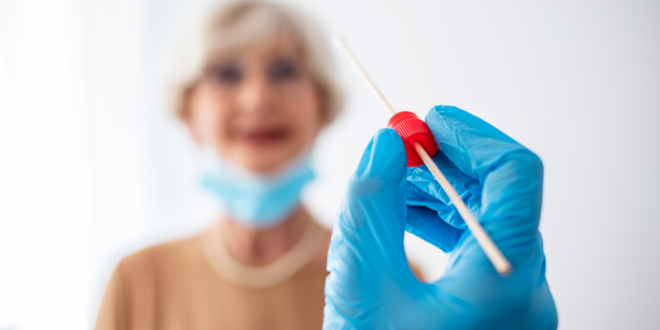Additional Policy and Regulatory Revisions in Response to the COVID-19 Public Health Emergency Interim Final Rules
The Department of Labor (DOL), Department of Health, Department of Health and Human Services (HHS), and the Department of the Treasury (Treasury), collectively “the Departments,” released interim final rules regarding implementation of the Coronavirus Aid, Relief, and Economic Security (CARES) Act’s coverage requirement for COVID-19 diagnostic tests and preventive services. These rules, which provide guidance on the cost-sharing requirements for COVID-19 tests and treatment, are timely due to public health experts’ expectation that several COVID-19 vaccines will be available by 2021.
The interim final rules became effective on November 2, 2020, and will sunset when the HHS Secretary determines that the pandemic has ended. Comments on the interim final rules may be submitted by January 5, 2021.
HIGHLIGHTS
CARES Act Clarification
The interim final rules confirm and define terms used in the CARES Act price transparency requirements under which providers are required to publish cash prices for performance of a COVID-19 diagnostic test. A “COVID-19 diagnostic test” is defined as a test for the detection of SARS-CoV-2 or the diagnosis of COVID-19 that meets one of the following four requirements.
- The test is approved, cleared, or authorized under the Federal Food, Drug, and Cosmetic Act (FFDCA).
- The developer has requested, or intends to request, emergency use authorization (EUA) under the FFDCA, unless and until the EUA request has been denied or the developer of such test does not submit a request within a reasonable time.
The FDA website provides a list of clinical laboratories and commercial manufacturers that have notified the FDA that they have validated their own COVID-19 test and are offering the test as outlined in FDA guidance. Plans and issuers must cover in vitro diagnostic tests for COVID-19 that are included on this list. A plan or issuer may take reasonable steps to verify that a test offered by a developer meets the statutory criteria. For example, a plan or issuer may request that a laboratory or commercial manufacturer provide documentation, such as a copy of the EUA request or pre-EUA submitted to the FDA, to demonstrate that it has requested or intends to request an EUA. These requests will not be considered to violate the FFCRA prohibition on medical management requirements as long as they are reasonable and necessary to verify that a COVID-19 test meets the statutory criteria.
- The test is developed in and authorized by a state that has notified the Secretary of HHS of its intention to review tests intended to diagnose COVID–19.
States and territories that have notified the FDA that they choose to use this flexibility are listed on the FDA website.
- Other tests that the Secretary of HHS determines appropriate in guidance.
A “provider of a diagnostic test for COVID-19” (referred to as a “provider”) is defined as any facility that performs one or more COVID-19 diagnostic tests. A “cash price” is defined as the charge that applies to an individual who pays in cash (or cash equivalent) for a COVID-19 diagnostic test. If a provider has not established a cash price for a COVID-19 diagnostic test that is lower than its gross charge or retail rate, the provider must make public the undiscounted gross or retail rate found in its master price list (which is analogous to the hospital’s chargemaster).
See the Advisors “Frequently Asked Questions on Health Plan Coverage under the Families First Coronavirus Response Act and the Coronavirus Aid, Relief, and Economic Security Act” Part 1 and Part 2 for more information.
Preventive Health Services Mandate
- The interim final rules clarify that plans and issuers subject to the preventive service mandate under the Patient Protection and Affordable Care Act (ACA) must cover, without cost-sharing, items and services that are integral to the furnishing of the recommended preventive service regardless of whether the item or service is billed separately. Further, if a COVID-19 immunization is not billed separately (or is not tracked as individual encounter data separately) from an office visit and the primary purpose of the visit is the delivery of the recommended COVID-19 immunization, the plan or issuer may not impose cost-sharing requirements with respect to the office visit.
- The interim final rules also clarify that plans and issuers subject to the preventive health services mandate must cover recommended immunizations for COVID-19 that are qualifying coronavirus preventive services, even if not listed for routine use on the Immunization Schedules of the CDC and whether in-network or out-of-network (with certain exclusions). Such coverage is required to be provided within 15 business days after the date the United States Preventive Services Task Force (USPSTF) or the Advisory Committee on Immunization Practices of the CDC (ACIP) makes an applicable recommendation relating to a qualifying coronavirus preventive service.
- Plans or issuers must reimburse out-of-network providers an amount that is reasonable, as determined in comparison to prevailing market rates for such service. The Departments will consider the amount of payment to be reasonable, for example, if the plan or issuer pays the provider the amount that would be paid under Medicare for the item or service. Furthermore, plans and issuers must ensure that participants, beneficiaries, and enrollees have access to a variety of out-of-network providers for such services.
The interim final rules provide that qualifying coronavirus preventive services will no longer be subject to the preventive health services mandate requirements on or after the expiration of the public health emergency for COVID-19 as determined by the HHS Secretary.
11/9/2020


